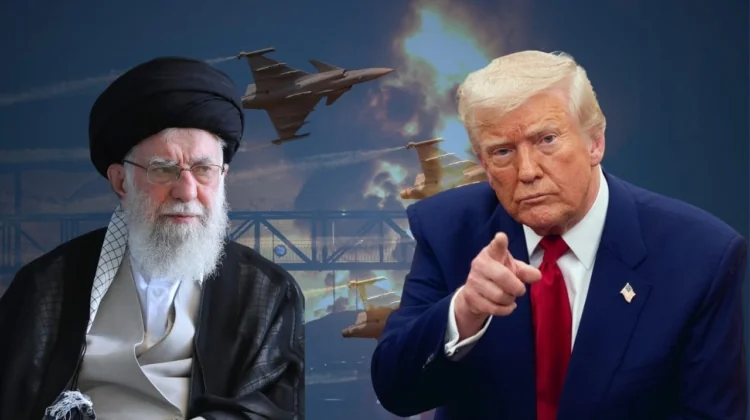
The Islamic Republic of Iran may soon resume negotiations with the Trump administration. That would be unwise.
Foreign Affairs reported recently that “since the ceasefire ending the 12-day war, the Trump administration has sought to resume its bilateral engagement with Iran.” The Iranian mullahs and their minions, however, are hesitant: “But Iran has not been ready to meet, in part due to divisions within Tehran’s elite on the merits of negotiations with the United States. Iranian officials, including Foreign Minister Abbas Araghchi, have insisted on preconditions that Washington is unwilling to accept, such as a U.S. guarantee that Iran would not be attacked while negotiations were underway.”
Yet Araghchi and other foot-draggers may not have the last word, because “regime ‘insiders’ say that Supreme Leader Ali Khamenei and members of the clerical power structure have recently reached a consensus that resumed negotiations are vital to the survival of the regime. If that is the case, Iran and the United States are likely to find a formula for returning to the negotiating table before long.”
If negotiations with the United States are vital to the survival of Iran’s Islamic regime, the U.S. should not engage in them. The Trump administration should be doing everything it can to help the Iranian people throw off that regime’s tyranny and re-establish Iran as the secular, Western-leaning society that it was before the shah was overthrown.
Also, the mullahs cannot be trusted. This is not simply because they oppose the U.S. and scream “Death to America.” No one wants to face the fact, but the unwelcome reality is that being dishonest to outsiders is a cardinal principle of the belief system that animates the Iranian regime.
As The Complete Infidel’s Guide to Iran explains, the concept of taqiyya, or dishonesty to unbelievers in order to protect Islam and the believers, as such is specifically Shi’ite, developed during the time of the sixth Imam, Jafar al-Sadiq, in the middle of the eighth century, when the Shi’ites were being persecuted by the Sunni caliph al-Mansur. Taqiyya allowed Shi’ites to pretend to be Sunnis in order to protect themselves from Sunnis who were killing Shi’ites.
Until the advent of the Shah Ismail I (who reigned from 1501 to 1524) and the Safavid dynasty, taqiyya was an important element of Shi’ite survival, for Sunnis, in the majority almost everywhere, would not infrequently take it upon themselves to cleanse the land of those whom they referred to as Rafidites, that is, rejecters—those who rejected the caliphates of Abu Bakr, Umar, and Uthman, whom Shi’ites claim were illegitimate usurpers of the authority that rightly belonged to Ali, who became the fourth caliph.
Some Shi’ite thinkers turned the secrecy that had become a necessity into a virtue. The medieval Shi’ite scholar Ali ibn Musa ibn Tawus, who died in 1266, taught that Allah had revealed Shi’ism secretly, and it was incumbent upon the believers to practice it in secret.
At the end of days, Allah will admit them secretly into Paradise.
The sixth Imam, Jafar al-Sadiq, who died in 765, stated: “Taqiyya is our religion and the religion of our fathers; he who has no taqiyya has no religion.” Other Imams also emphasized the cardinal importance of taqiyya, apparently not only because Shi’ites were under constant threat from Sunnis, but because Shi’ite Islam contained doctrines that must stay hidden from out- siders. Some sayings of the Imams include, “He who has no taqiyya has no faith”; “he who forsakes taqiyya is like him who forsakes prayer”; “he who does not adhere to taqiyya and does not protect us from the ignoble common people is not part of us”; “nine tenths of faith falls within taqiyya”; “taqiyya is the believer’s shield (junna), but for taqiyya, God would not have been worshiped.”
The Islamic Republic of Iran is a Twelver Shi’ite regime that reveres Jafar al-Sadiq and the other Shi’ite authorities who promoted taqiyya as essential to their religion. Nowadays, State Department bureaucrats know nothing of this, and care even less; they don’t believe that religious principles have any actual effect upon those who are conducting the affairs of state. Yet if they were to respect the mullahs enough to take them at their word, they would realize that religious principles such as taqiyya are far more important to the mullahs as they deal with non-Muslim states than analysts have previously realized. And they would accordingly think twice about taking what the Iranian negotiators say as trustworthy.















